How the CEOs of Europe’s biggest corporations write EU policy

There’s an organisation based in Brussels called the European Round Table of Industrialists (ERT). It’s a club – invitation only, not transparent, not democratic – just a private club. The only people who can become members of this club are the CEOs of the biggest European multinational corporations.
ERT members include the CEOs of Philips, Volvo, Shell, Fiat, Nestle, BP etc. Not US corporations – just those with their roots in Europe.
The ERT was instrumental in forming the single market in the first place. In 1985, Jacques Delors gave a speech to the European Parliament outlining the formation of a single market that mirrored a report by the CEO of Philips, Wisse Dekker – Europe 1990: An Agenda for Action. The aim of the ERT (and of the single market) is to promote growth and to orient the European economy towards exports, in order to obtain greater global market share for European corporations. From an ecological perspective, we should be doing the exact opposite of those things – stabilising the economy and gearing production towards local markets – nationally and in our communities.
ERT members are on very close terms with European Commissioners – they dine at each other’s homes, they meet regularly during work hours and they provide commissioners with places on the boards of their corporations (it’s called the ‘revolving door‘ between the state sector and the corporate sector).
Members of an activist group called the Corporate Europe Observatory managed to get into the offices of the ERT in Brussels, disguised as caterers. They were able to photocopy lots of documents, in which they found a lot of correspondence between Round Table members and commissioners about EU policy.
Many reports originating from the ERT end up as Commission policy almost word-for-word. For example, the ERT decided that we need to expand the motorway network in Europe, to facilitate growth and exports, and almost exactly the same map that they produced was used by the Commission and adopted by the European Parliament.
The European Commission is an appointed body not an elected one. EU policy officially originates from the European Commission, but unofficially and in reality, it originates with the ERT.
This isn’t controversial. You can search for it – It’s not a conspiracy theory. In fact you don’t have to search very far – Leon Brittan encouraged it publicly, and the attitude still prevails today – what’s good for the European Round Table of Industrialists is good for all of us.
If you believe that, then you’ve obviously strayed onto this website accidentally and this isn’t going to make much sense to you.
I think the appropriate response when confronted with a corporate puppet institution is to reject it. So that’s what I’ll be voting for in June, and of course I wouldn’t be writing this if I didn’t want to persuade you to do the same.
I think that probably most people in the sort-of greenie, sort-of left circles I move in are thinking of voting to stay in, for reasons related to European environmental and social directives. I’d argue that those directives don’t come close to making up for the increase in global corporate power, growth and exports that staying in will bring. And remember that polluting factories haven’t been eliminated, just exported.
However, I’ve also heard arguments supporting the EU because of vague notions of ‘unity’. I’m in favour of unity, just not unity through corporate institutions. We can build our own unity.
We’re not going to be able to reject our corporate-controlled national government quite yet, but we have an opportunity to reject this one.
The views expressed in our blog are those of the author and not necessarily lowimpact.org's
8 Comments
-
1Hannah Lovegrove April 9th, 2016
I think that Unilever might be trying to change the system from within…..
-
2Sue fownes April 9th, 2016
They are enabled by P&G …Loreal are a small side kick in comparison …tho they do own the body shop.
Palestine …olive oil.without it they have no skincare or haircare industry .Tho much is synthesised ingredients …which makes all their skin scalp hair care all carcinogenic ..uff no to mention the domestic cleaners …and the kills 99.9% of bacterias….
It’s why we must protect the small Independant growers…as they have been implementing laws thru the coruption of the governments that are removing people’s from their lands …by preventing them from affording their lands & destroying culture that has been sustainable since foreva
-
3Sue fownes April 9th, 2016
We can do this by making our own relationships thru cooperation …*holidays abroad bringing boxs of excellent organic supplies for oneself & to share & having the pleasure of shaking the hands of the people’s who have grown & picked the fruit.*while we support the supermarkets I can’t help but feel it’s a path to starvation …as it already is for so many .leaving Europe doesn’t mean we can’t travel there & bring back gifts
-
4Susu April 9th, 2016
I am not sure any country anywhere can be free of corpocracy – it is global. In or out of the EU – Britain will be affected by corporate decisions – and banks etc. We need unity and to work together to change how things are !
-
5Dave Darby April 9th, 2016
Yes, it was one of the things that originally turned me on to how the world works – the fact that Ethiopia was exporting food all through its famine. I thought ‘what inhuman government could do that?’, but of course it wasn’t to do with the government, it was because the best land was owned by corporations, growing luxuries like pineapples, tea, coffee and tobacco for Western markets, whilst Ethiopians didn’t have land to grow basic foodstuffs. And now there’s a huge corporate land grab across Africa – http://www.stopafricalandgrab.com/.
-
6Dave Darby April 9th, 2016
I think you’re right – leaving Europe wouldn’t end the corporatocracy – but what’s next? A World Parliament with a World Commission and a World Round Table of Industrialists? I’d rather leave and build unity through community organisations. How about a European Community Energy Network? Or a European Network of Housing / Worker Co-ops? Now that would be something to get behind – something the corporate sector can’t get a toehold in.
-
7Steve Gwynne April 10th, 2016
I post this because I think there is a strong correlation between corporate activity and “the invention (and distribution*) of new resource-exploiting technologies and cultural shifts such as the establishment of trade”.
As such, the EU is facilitating the human invasion of the world ecology whereas what I think is needed is a global ecological ethic that prescribes defined boundaries of human resource use and for socio-economic justice to be politically/scientifically managed within these prescribed boundaries.
* my addition
http://www.commondreams.org/news/2016/04/08/humans-invasive-species-heading-crash-study-says
-
8Susu April 10th, 2016
all your suggestions are totally worth getting behind !




 Obama says we’ll be ‘at the back of the queue’ for TTIP if we leave the EU; that’s the best argument I’ve heard for Brexit
Obama says we’ll be ‘at the back of the queue’ for TTIP if we leave the EU; that’s the best argument I’ve heard for Brexit
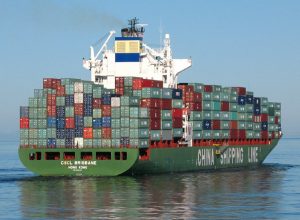 Re-thinking liberalisation – to counter corporate takeover
Re-thinking liberalisation – to counter corporate takeover
 My meeting with EU Trade Commissioner Cecilia Malmstrom and corporate representatives, and the rules they want to impose on us
My meeting with EU Trade Commissioner Cecilia Malmstrom and corporate representatives, and the rules they want to impose on us
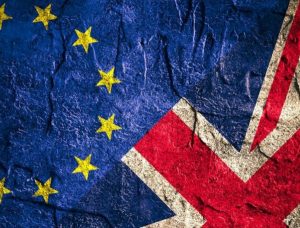 Why global capital fears Brexit
Why global capital fears Brexit
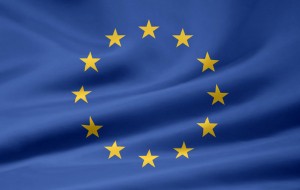 The EU referendum from a low-impact perspective
The EU referendum from a low-impact perspective
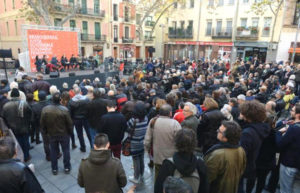 How the EU is causing problems for the ‘Preston Model’ of local, non-corporate procurement
How the EU is causing problems for the ‘Preston Model’ of local, non-corporate procurement
 Commons economy
Commons economy
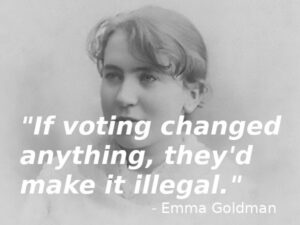 The 'democracy problem'
The 'democracy problem'


